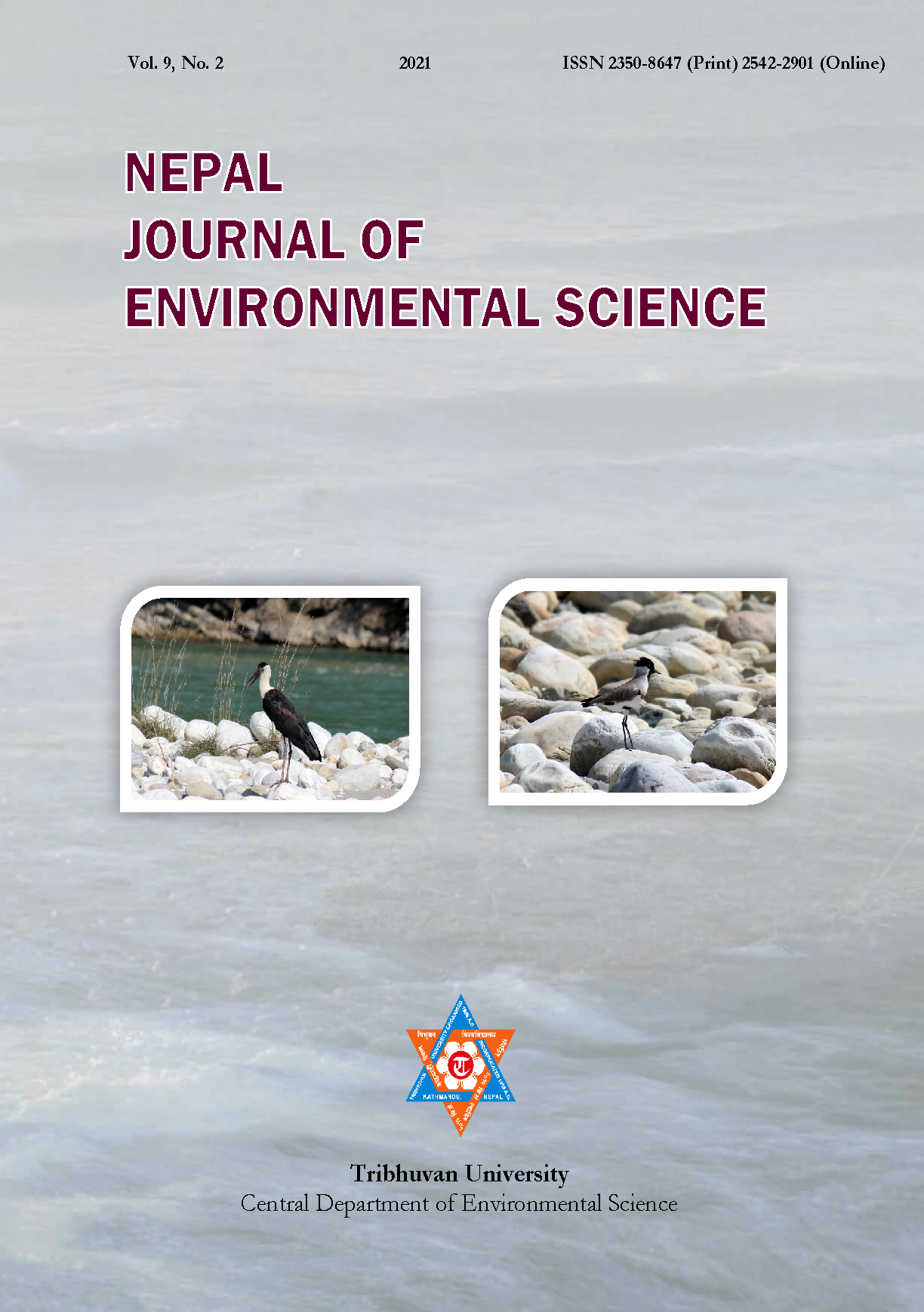Generation, characterization, and environmental implications of solid waste and its management in the Everest region
DOI:
https://doi.org/10.3126/njes.v9i2.37381Keywords:
Adverse environmental impacts, Everest tourism, Nepal, Sagarmatha, Solid waste challenges in mountain communities, Solid Waste Management in the EverestAbstract
Managing solid waste is becoming a rather challenging task in remote areas, including the Mt. Everest region in Nepal, due to its cold climate, complex topography, and extreme environmental factors. Using published and unpublished literature and personal communications to key informants, this paper analyzes the situation of solid waste management in the Everest region as it relates to increasing tourism and possible environmental implications in the region. The study revealed that combined efforts from people of all levels associated with the mountain region would create a circular waste management system. The paper also reports the existing practices and planned activities for the essential process such as source segregation of waste, collection, use of material recovery facility, and recycling which could lead to sustainable solid waste management in the Everest region and beyond with similar context.
Downloads
Downloads
Published
How to Cite
Issue
Section
License
Copyright (c) 2021 Central Department of Environmental Science, Tribhuvan University

This work is licensed under a Creative Commons Attribution-NonCommercial 4.0 International License.
This license enables reusers to distribute, remix, adapt, and build upon the material in any medium or format for noncommercial purposes only, and only so long as attribution is given to the creator.

